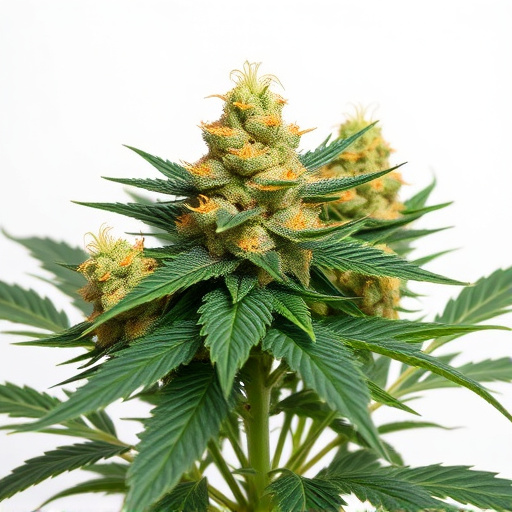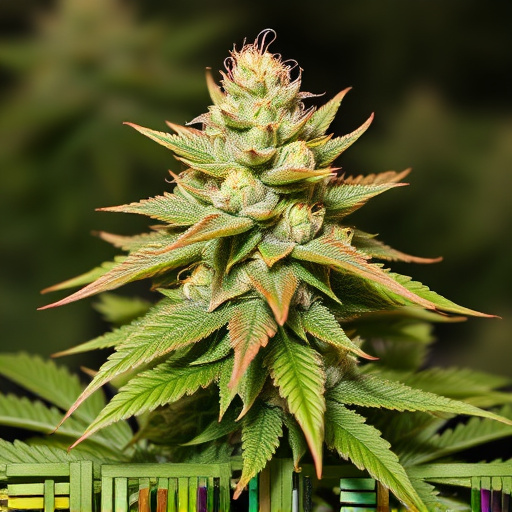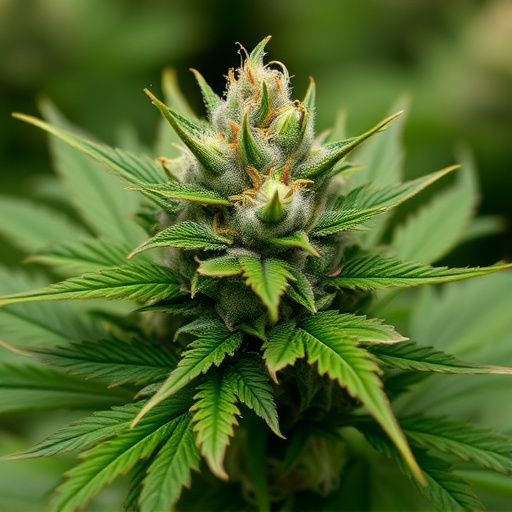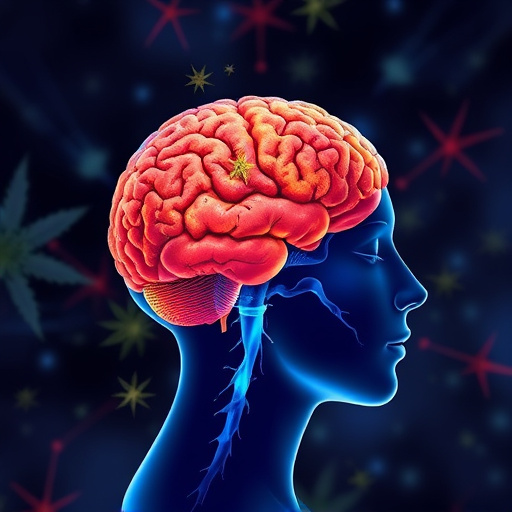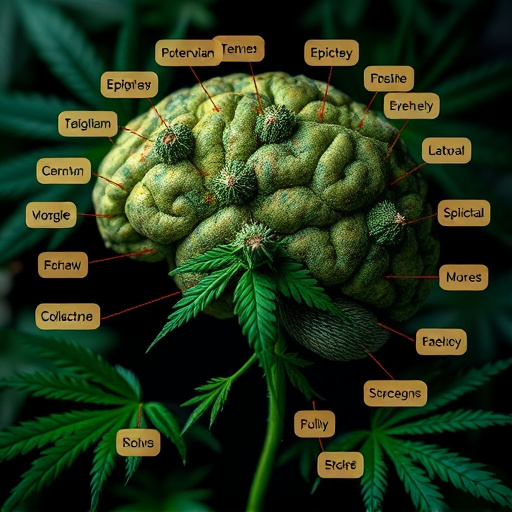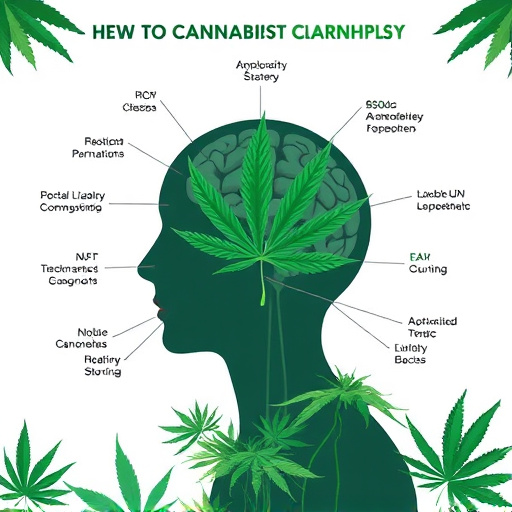Cannabis, through compounds like THC and CBD, offers natural remedies for pain management and epilepsy. While THC binds to brain receptors affecting consciousness, CBD indirectly reduces pain by inhibiting inflammation. Strains high in both THC and CBD prove effective against epilepsy seizures and chronic pain without intoxicating effects. Rich in CBD, these strains are gaining attention as alternative treatments for epilepsy, improving patients' quality of life. Integrating cannabis into pain management, especially for neuropathic pain, combines the benefits of THC and CBD for holistic relief preferred over traditional pharmaceuticals.
“Unraveling the science behind THC and CBD’s role in pain management offers a promising avenue for alternative treatments. This article explores how these compounds, found in cannabis, interact with our bodies’ endocannabinoid system to perceive and alleviate pain. From understanding their mechanisms to discovering specific cannabis strains effective for epilepsy, we delve into integrating cannabis into modern pain management strategies. Learn how these natural compounds could provide relief and potentially transform traditional treatment approaches.”
- Understanding THC and CBD: The Role in Pain Perception
- Cannabis Strains for Epilepsy: A Potential Treatment Approach
- Integrating Cannabis into Pain Management Strategies
Understanding THC and CBD: The Role in Pain Perception
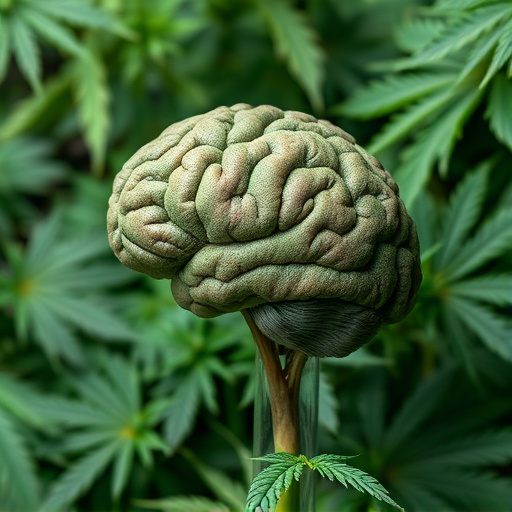
Cannabis has been used for centuries as a natural remedy, and modern research is shedding light on how specific compounds within the plant, such as THC (Tetrahydrocannabinol) and CBD (Cannabidiol), interact with our bodies to manage pain. While THC is known for its psychoactive properties, it also plays a significant role in regulating pain perception. It binds to cannabinoid receptors in the brain and spinal cord, influencing neurotransmitters that communicate pain signals to the brain, thereby reducing the sensation of pain.
On the other hand, CBD doesn’t interact with the same receptors as THC but instead influences pain pathways indirectly. It can reduce inflammation by inhibiting certain enzymes and interacting with serotonin receptors, which play a role in regulating mood and pain perception. This dual action makes cannabis strains high in both THC and CBD particularly effective for managing conditions like epilepsy-related seizures and chronic pain without causing the intoxicating effects associated solely with THC.
Cannabis Strains for Epilepsy: A Potential Treatment Approach
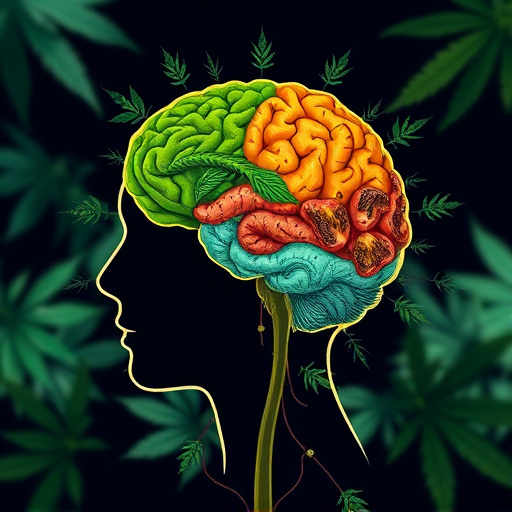
Cannabis has been a subject of interest in medical circles for its potential benefits, especially in treating various neurological conditions. Among these, epilepsy is a notable focus due to the promising effects of specific cannabis strains. These strains, often rich in cannabidiol (CBD), have shown significant potential in managing seizures and reducing their frequency.
Research suggests that CBD interacts with the endocannabinoid system, which plays a crucial role in regulating nerve cell activity. By modulating this system, CBD may help in calming overactive neural pathways responsible for epilepsy-related seizures. Additionally, certain cannabis strains containing both THC (tetrahydrocannabinol) and CBD can offer further advantages, as THC’s anti-inflammatory properties might contribute to its therapeutic effect. This approach, therefore, presents a promising treatment option for epilepsy management, providing patients with a natural alternative for improving their quality of life.
Integrating Cannabis into Pain Management Strategies
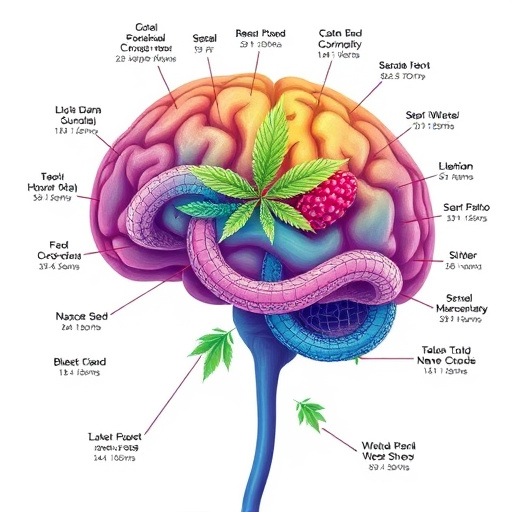
Integrating cannabis into pain management strategies has gained significant attention, offering a natural alternative to traditional medications. Cannabis contains various compounds, with Tetrahydrocannabinol (THC) and Cannabidiol (CBD) being the most well-known. While THC is known for its psychoactive effects, CBD does not produce a “high.” This makes it a popular choice for managing chronic pain without altering consciousness.
When considering cannabis strains for epilepsy or other conditions requiring pain relief, patients often seek high CBD content. Such strains can effectively manage pain while minimizing the risk of THC’s adverse effects. Moreover, combining THC and CBD in specific ratios has shown promise in treating neuropathic pain and inflammation, providing a holistic approach to pain management that resonates with many patients looking for natural solutions beyond conventional pharmaceuticals.
Cannabis, with its diverse compounds like THC and CBD, offers promising avenues for pain management. While THC influences pain perception, CBD has shown potential in treating specific conditions like epilepsy, highlighting the importance of tailored cannabis strains. Integrating these natural substances into medical strategies can provide relief, but further research is crucial to ensure safe and effective usage. Exploring cannabis as a treatment option, especially for epilepsy patients, may lead to significant advancements in pain management.
